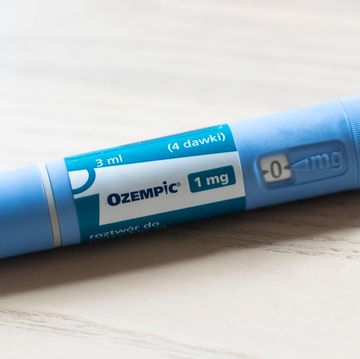A new study, published in the International Journal of Obesity, has revealed that the proportion of some bacteria in the gut may be related to how much weight one is able to lose and under which conditions. This means that bacteria may play a role in personalized nutrition.
RELATED: This Is How You Should Lose Weight, According to Your Body Type
Researchers from the Department of Nutrition, Exercise and Sports at the University of Copenhagen in Denmark looked at 62 people with increased weight circumference who were assigned to follow either the New Nordic Diet (full of dark greens, berries and whole grains) or the Average Danish Diet. The participants were grouped according to their relative abundance of two different forms of bacteria, Prevotella and Bacteroides.
Check out some of the weirdest weight-loss trends through history:
RELATED: There Are 6 Types Of Body Fat—Here's What You Need To Know About Them
They found that people who had a higher ratio of Prevotella to Bacteroides and followed the New Nordic Diet had a larger loss of body fat compared to those with that same ratio who followed the Average Danish Diet. No difference in weight loss was observed between the two diets in people with a low Prevotella to Bacteroides ratio. They also found that people with a higher ratio were more susceptible to lose body fat when following a diet with high amounts of fiber and whole grains, as compared to those who had a low ratio.
RELATED: 8 Prescription Meds that Make It Harder to Lose Weight
"Human intestinal bacteria have been linked to the increasing prevalence of overweight and obesity, and scientists have started to investigate whether the intestinal bacteria can play a role in the treatment of overweight,” explained co-author of the study, Prof. Arne Astrup. “But it is only now that we have a breakthrough demonstrating that certain bacterial species play a decisive role in weight regulation and weight loss.”













